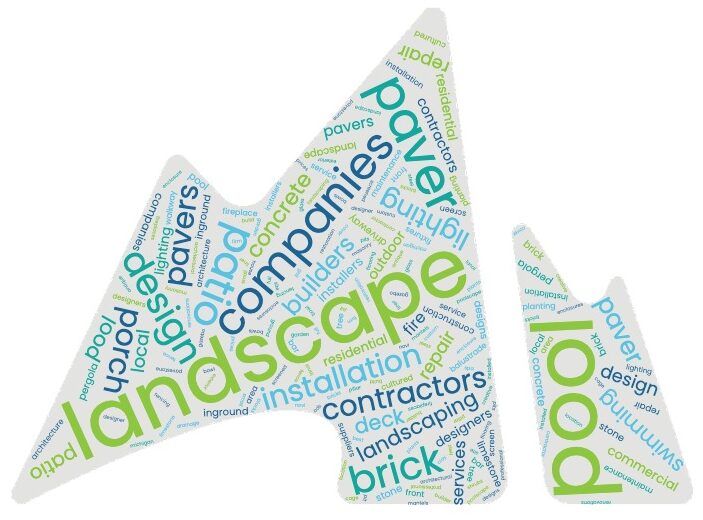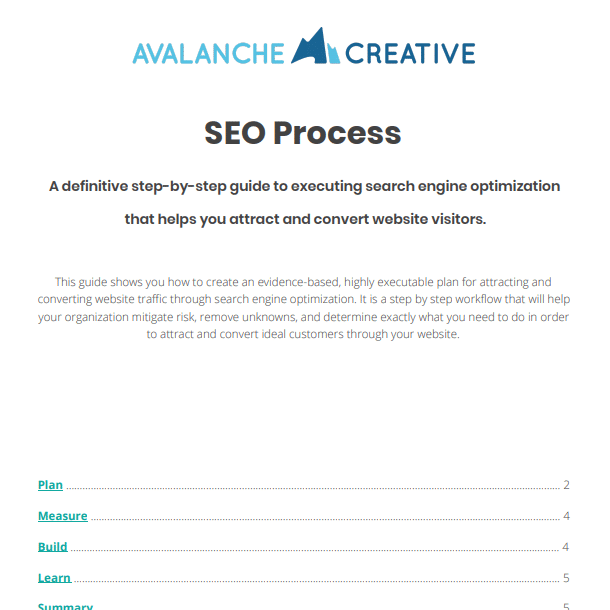10 Lawn Care SEO Tips for Landscapers
Category: Landscapers, Search Strategy | Tags:
Search engines are at the core of how we look for services and products, including landscaping and lawn care companies. Let’s take a look at the perks of using lawn care SEO to attract more customers to your website, plus some tips for getting started on the right foot.
Why Use SEO for Landscaping?
Short answer: It works.
Long answer: People use search engines multiple times a day every single day to look for solutions to problems they have, including lawn care services. By leveraging SEO, you allow yourself to get in front of them organically and show your expertise in the process.
Search engine optimization is the practice of increasing the number of qualified leads that come to your website when people use search engines. Since people are way more likely to scroll past the ads that appear at the top of search engine results first, it benefits your business to build your brand’s authority on landscaping to help you reach the coveted first page.
Our Lawn Company SEO Tips
Building a robust SEO strategy takes time before it starts to pay dividends. However, if you start using these SEO tips, you’ll be able to pave the way for future success and build a solid foundation early.
1. Prioritize Local SEO
While landscaping SEO in general is important, local SEO is essential. Chances are, the geographical area you serve determines who your customers will be. Therefore, it’s important to work toward ranking for search engine terms that are relevant to your state, region, city, or even the neighborhoods you serve.
For example, let’s say you’re trying to market your Grand Rapids-based lawn care business. You might end up using search terms like “lawn service Grand Rapids, MI,” or “Grand Rapids landscapers.” Incorporating these phrases seamlessly into your content can make a difference in attracting the traffic you want to your website. The classic, “lawn services near me” is also a great target, no matter which areas you serve.
2. Research Competitors to Find Keywords for Lawn Care
Not sure where to start with researching keywords? Look no further than your top competitor. Chances are, if they’re using an SEO strategy of their own, they might be using some of the keywords you should target as well. A lot of SEO tools like SEMrush allow you to look at the keywords your competitors are ranking for, along with opportunities they may have missed.
Then, once you’ve started implementing some of the other recommendations on this list, you can move toward edging them out of contention on search engines. One of the best ways you can do that is by…
3. Write Engaging, Informative Content
If SEO tools and techniques were camping gear, content would be a Swiss army knife. You can use written content for a lot of different purposes, attract people to your website, and drive them to take action with your messaging.
The content you create should include:
- Detailed, informative website pages
- Engaging blog posts
- Dynamic video content
- Infographics for your website or blog
- And more
This allows you to answer the questions your customers and prospects ask the most. It also helps you illustrate your expertise and authority in your industry and weigh in on topics relating to your industry.
4. Create Location & Service Area Pages
At Avalanche, we’re also big fans of building localized service pages for each part of your service area. It’s the cheese to local CEO tactics’ macaroni.
Revisiting the Grand Rapids landscaping company example, this might mean creating separate pages with keywords relevant to your services for Grand Rapids, East Grand Rapids, Kentwood, and Holland. You’ll want to make sure you create separate pages for each service you offer in a given area as well.
5. Reuse & Recycle Content
Unless you’re Beyoncé, you probably can’t simply publish content online and then expect to rake in new sales in minutes. Since that’s probably not the case, we instead recommend reusing and recycling your content across your different marketing channels to maximize its SEO value.
Some examples of this include breaking down excerpts of your blog posts to use in your social media content, or transcribing and expanding upon your marketing videos to make a new website page. The possibilities are almost endless, and they can help you build brand authority and attract more people to your website.
6. Make Your Website Easy to Use
Your content could be Pulitzer-worthy and reflect the writing prowess of Charles Dickens or Charlotte Brontë. However, without a website that’s easy to navigate, it won’t matter at all.
Having a website that loads quickly and is easy to navigate is essential for SEO. This is because Google can tell how much time someone spends on a website, or if they leave without taking any action because it loads too slowly.
To make your website more user-friendly, work with a developer who understands SEO. They can help you create a website that’s both easy to use and attracts the type of website visitors you need.
7. Look for Backlinking Opportunities
Backlinks are links that direct to your website from other parts of the internet. For landscaping companies, getting more backlinks might involve working with other local organizations.
Some common examples of places you can build backlinks include:
- Through guest posts with businesses you’ve worked with previously
- On your local Chamber of Commerce website
- Through industry organization websites
- On your Google My Business and social media profiles
However, not all backlinks are created equal. Some sites that compile lists of links have no SEO value or could even hurt your rankings by affiliation. It’s like the old adage, “one bad apple spoils the bunch,” but with your online reputation. Work with an SEO expert to see where your site may be linked so they can disavow your association with these websites as needed.
8. Work with a Technical SEO Expert
Technical SEO experts know all the tips and tricks for improving your website’s performance on the back end. This includes making sure your pages load quickly, don’t have any broken links, and can be indexed properly on search engines.
9. Strengthen Your Google Business Profile
Your company’s Google Business Profile is essential for building a local SEO strategy and engaging with potential customers. By updating it with posts regularly, you make it easier for your potential customers to find you before they even know your website exists.
Google Business Profiles also allow you to directly answer some of your most frequently asked questions, so people can learn more about your business right on the spot.
10. Cultivate Your Reviews
People trust reviews. This is because, in their eyes, reviewers will tell them more about your services than any of your web pages ever could.
Therefore, it’s essential to encourage your happiest customers to leave positive reviews, both on your website and on your Google Business Profile. This way, more people will see what it’s like to receive your lawn care services and know you’re a trustworthy business. Plus, on the off chance that you do get a bad review for some reason, having an arsenal of positive reviews will make it look like the outlier that it is.
From digital to traditional marketing methods, this article lists 30 resources to get you started.
Get the Keyword List
Fill out the form below and we’ll send you the list! Ready to invest in SEO and find the perfect keyword list for landscapers? Chat with us today.
Share this article:
The Avalanche Email: Fun. Simple. Educational. No Selling.
Learn Result-focused SEO & Content
Join over 2,272+ others who get one email every Wednesday with simple instructions on how to get more website traffic and leads through SEO and content marketing. (Learn more about the email)
More Leads with Less Work
Download the Landscapers Keywords List

Download our list of 200+ landscaping related keywords.
- Organized and ready to be implemented.
- Training on what to do with the keywords.
Related Resources

Download our SEO Process.
Keep Learning
Creating the Perfect SEO Content Template in Google Docs
Learn how to create an SEO Content Templates in Google Docs to help drive new traffic to your website from the search engines. SEO Content Templates provide specific recommendations and directives for creating new content on your website with the purpose of improving your SEO.
How To Show Up in Gemini (And Win More Local Jobs)
Show up in Gemini when homeowners search for landscaping services. Build the right signals on Google and your website to win more qualified local jobs.
How to Run Google Ads for Landscapers: A Complete Guide
Learn how to set up Google Ads for landscapers, attract qualified leads, and win more local jobs with this step-by-step guide.
🏔️ Watering > Planting New Seeds
Your next marketing win may already be on your site. Learn how to optimize existing pages for better rankings, traffic, and results.
The Recipe vs. The Meal
Your customers buy the experience, not the product. Discover a simple way to shift your message from ingredients to the full meal.
What’s the Best CMS for Landscaping Businesses?
Compare the best website platforms for landscapers. Learn the pros and cons of Wix, Squarespace, and WordPress, and why WordPress is best for long-term SEO.




